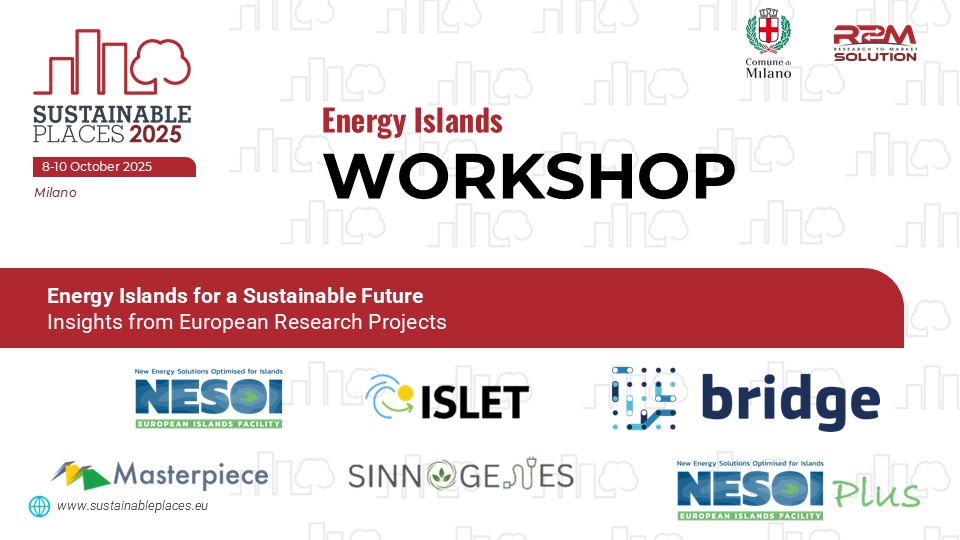Energy islands for a sustainable future: Insights from European research projects

This workshop explored the role of islands as living laboratories for the energy transition, highlighting how their characteristics make them both vulnerable to external pressures and well suited to pioneer innovative solutions. Islands face persistent challenges such as dependence on imported fossil fuels, limited infrastructure, higher energy costs, and vulnerability to climate change. At the same time, their geographical boundaries, strong sense of community, and visibility turn them into ideal testbeds for replicable solutions in renewable energy, storage, smart grids, and citizen engagement.
The session showcased results from leading EU-funded projects, each addressing complementary aspects of the clean energy transition.
NESOI and NESOI+ supported local authorities in preparing and implementing clean energy investments while contributing to the UNI standard, a harmonised methodology for sustainable transition planning in insular contexts.
Masterpiece focused on local empowerment and replication of island solutions, showing how municipalities turned pilot experiences into broader strategies.
Sinnogenes advanced the design of resilient energy systems for insular territories, ensuring reliability and adaptability in the face of climate and infrastructure challenges.
ISLET highlighted the role of Renewable Energy Communities (RECs) in accelerating islands’ decarbonisation. By developing models specifically addressing typical features and barriers of insular areas, ISLET improved the capacity of island municipalities to support citizen-led initiatives, enhance participation, and improve access to funding. ISLET also built a European peer-to-peer support network, enabling municipalities and communities to replicate REC experiences across the Mediterranean and beyond.
The workshop also featured the BRIDGE initiative, which promoted collaboration across EU projects in smart grids, storage, digitalisation, and energy communities, linking project outcomes to European policy discussions. The session was designed as an interactive workshop rather than a sequence of stand-alone presentations. Each speaker provided a concise overview of project goals and results, followed by a moderated discussion with the audience.
Outcomes included:
Strengthened networks among projects on insular energy systems.
Collected feedback and needs from stakeholders.
Mapped opportunities for joint exploitation and dissemination.
Built awareness of emerging standards.
Supported municipalities and citizens in adopting RECs.
By combining innovation, policy alignment, and community engagement, the workshop showed how islands shifted from being “energy challenges” to “energy pioneers,” offering valuable lessons for the wider European transition.
